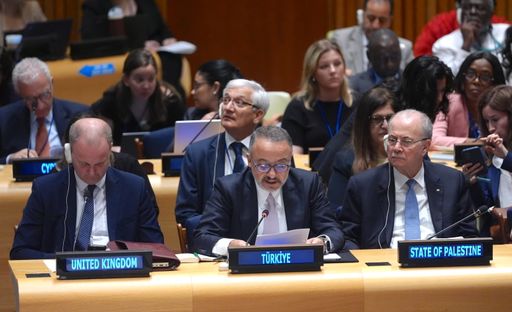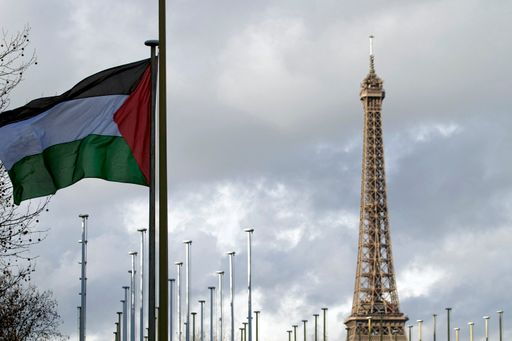Türkiye has firmly rejected claims suggesting it supported the disarmament of Hamas during the recent UN conference on Palestine, held from 28 to 30 July 2025.
The conference, formally titled “High-Level International Conference on the Peaceful Resolution of the Question of Palestine and the Implementation of the Two-State Solution,” was co-chaired by Saudi Arabia and France at the United Nations General Assembly.
The final declaration’s 11th article, which refers to “Hamas ending its governance in Gaza and transferring weapons to the Palestinian Authority under international engagement”, was misinterpreted by some as a call for disarmament.
However, Türkiye clarified that the original mention of “disarmament” was removed from both the main text and annexure, following its intervention.
Instead, the reference was reframed to link the transfer of arms to the broader political objective of Palestinian statehood.
“Based on Israel’s longstanding record, Türkiye believes that any disarmament by Palestinian armed groups must be strictly tied to the establishment of a sovereign, contiguous, and independent Palestinian state with East Jerusalem as its capital, or to an inter-Palestinian agreement reached through a reconciliation process.”
“However, in order to preserve the unity of the international community, we chose not to raise formal objections this time. We hope our concerns are taken into account in future processes,” Turkish foreign ministry said.
Similarly, Türkiye refuted claims that it called on Hamas to unconditionally release Israeli hostages.
It emphasised that Article 8 should be considered in the broader context of the ceasefire agreement.
That article expresses support for the mediation efforts led by Egypt, Qatar, and the United States to reach a deal that would permanently end hostilities, ensure the release of all hostages, facilitate the exchange of Palestinian prisoners, return all bodies, and secure full Israeli military withdrawal from Gaza.

“Protecting the Two-State Solution”
The three-day UN conference aimed to draw up a concrete, time-bound roadmap for implementing a two-state solution to the Israeli-Palestinian conflict. It brought together 122 UN member states and six international organisations.
The event was co-chaired by the Saudi Foreign Minister, Prince Faisal bin Farhan, and the French Foreign Minister, Jean-Noel Barrot. The Palestinian delegation was led by Prime Minister Mohammad Mustafa and Foreign Minister Varsen Aghabekian. A total of 32 countries participated at the level of foreign minister, with others being represented by deputy ministers or special envoys.
The gathering was also addressed by UN Secretary-General Antonio Guterres and General Assembly President Philemon Yang.
Türkiye was represented by Deputy Foreign Minister Nuh Yilmaz and played a key role by co-chairing one of the eight working groups, specifically on protecting the two-state solution.

Momentum towards recognising Palestine
One of the most significant outcomes of the conference was the momentum gained towards recognising the State of Palestine, despite pressure from the United States and Israel.
On 29 July, during the conference, fifteen countries, including France, Ireland, Australia, Canada, Norway, and Spain, issued a joint statement dubbed the “New York Call,” expressing their intention or openness to recognise Palestine during the upcoming 80th UN General Assembly High-Level Week.
The United Kingdom also signalled a policy shift, with Foreign Secretary David Lammy stating that if Israel failed to end its military offensives in Gaza and commit to a lasting peace based on the two-state formula, the UK would move to recognise Palestine during the same UN session.















